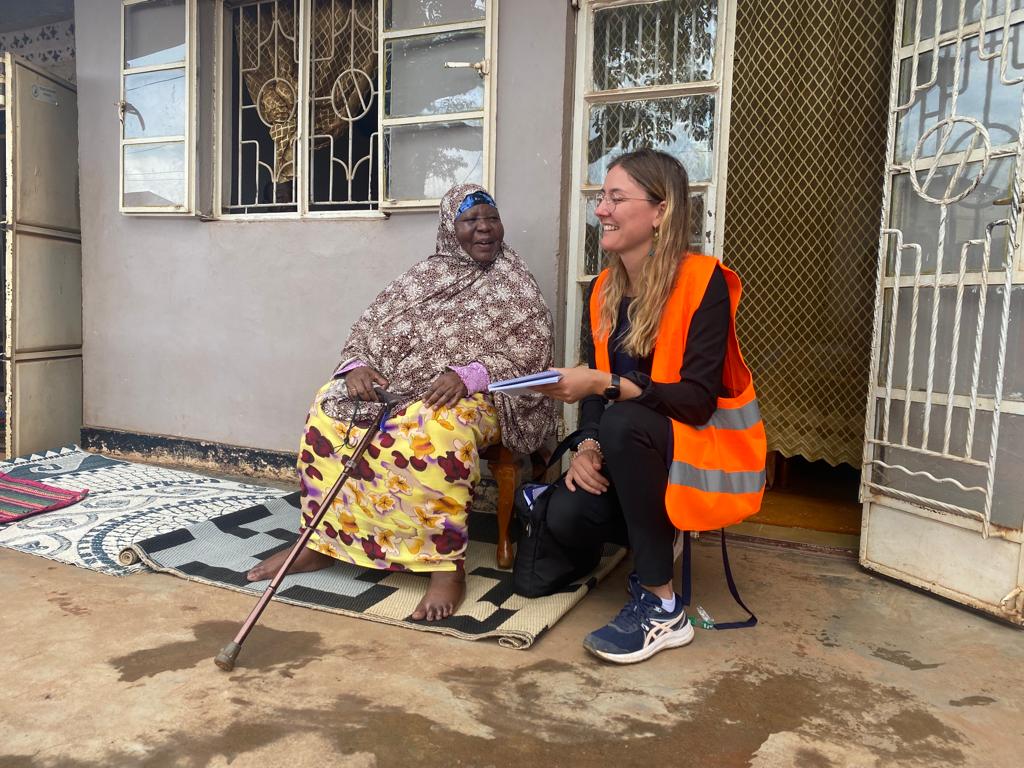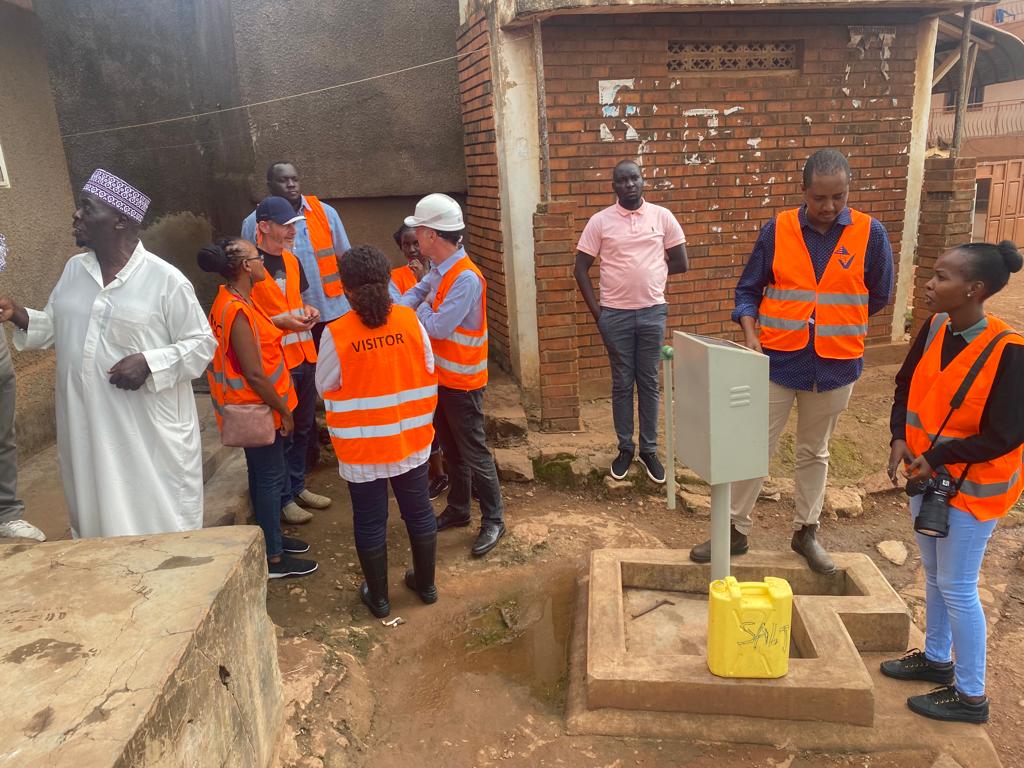
In an endeavor to uplift Urban Poor communities, representatives from Agence Française de Développement (AFD), a crucial project funder, recently embarked on a field visit to evaluate the impact of National Water and Sewerage Corporation’s (NWSC) prepaid meters in these underserved areas. The specific focus of this assessment was on the sanitation aspect, as part of the KW-WATSAN Project Package 5B.
The primary objective of the visit was to gauge the effectiveness of Prepaid Point of Measurement (PPM) systems in enhancing water and sanitation services for the urban poor, particularly those residing in informal settlements. Understanding the experiences and perspectives of the community members, including women and vulnerable groups, was a vital aspect of this evaluation.
During their visit, the AFD team actively engaged with stakeholders, ensuring their voices were heard. Their feedback on the functionality and usability of the Susteq PPM, a prominent system deployed in the communities, was collected and meticulously analyzed. The aim was to identify areas of improvement and scalability for future implementation.
This benchmarking exercise allowed for the identification of successful strategies that could be replicated to improve access to water and sanitation services in other urban poor areas. The valuable insights gained from this visit have the potential to transform the lives of countless individuals living in underserved communities.
As part of their exploration, the AFD team had the privilege of delving into the Susteq PPM dashboard alongside Otteran Tayebwa, an expert from the Central Support Unit. This comprehensive dashboard showcased the reporting system’s professionalism and effectiveness in monitoring and managing the PPMs. The interaction provided the AFD team with a deeper understanding of the susteq PPM operations and its potential to bring about positive change in water and sanitation services.
Deeply impressed by the efforts of NWSC, the AFD team commended their commitment to ensuring safe and affordable water availability in informal settlements. Acknowledging the significance of their visit, the team also expressed their appreciation for the new susteq technology during their visit to the office of the Urban Poor Projects Branch (UPPB) in Kisenyi.
During the visit, Kampala Water’s Mr. Basajja Siraggi presented an insightful analytical study of the branch’s operations. He highlighted the extensive area of coverage, which includes the Kampala metropolitan region, and provided information on the two types of prepaid meters, namely Susteq and Kent, that have been successfully deployed in all the informal settlements. Mr. Siraggi also emphasized the various benefits of the new system, such as mobile money transactions, banking integration, and vending facilities. Moreover, he expressed gratitude to the funders for their unwavering support of government projects aimed at enhancing water and sanitation services for the urban poor.
This comprehensive assessment serves as a catalyst for further improvements and initiatives to address the water and sanitation needs of urban poor communities. With an unwavering commitment to a better quality of life for all residents, this evaluation marks a significant step forward in transforming lives and fostering sustainable development in underserved areas.



